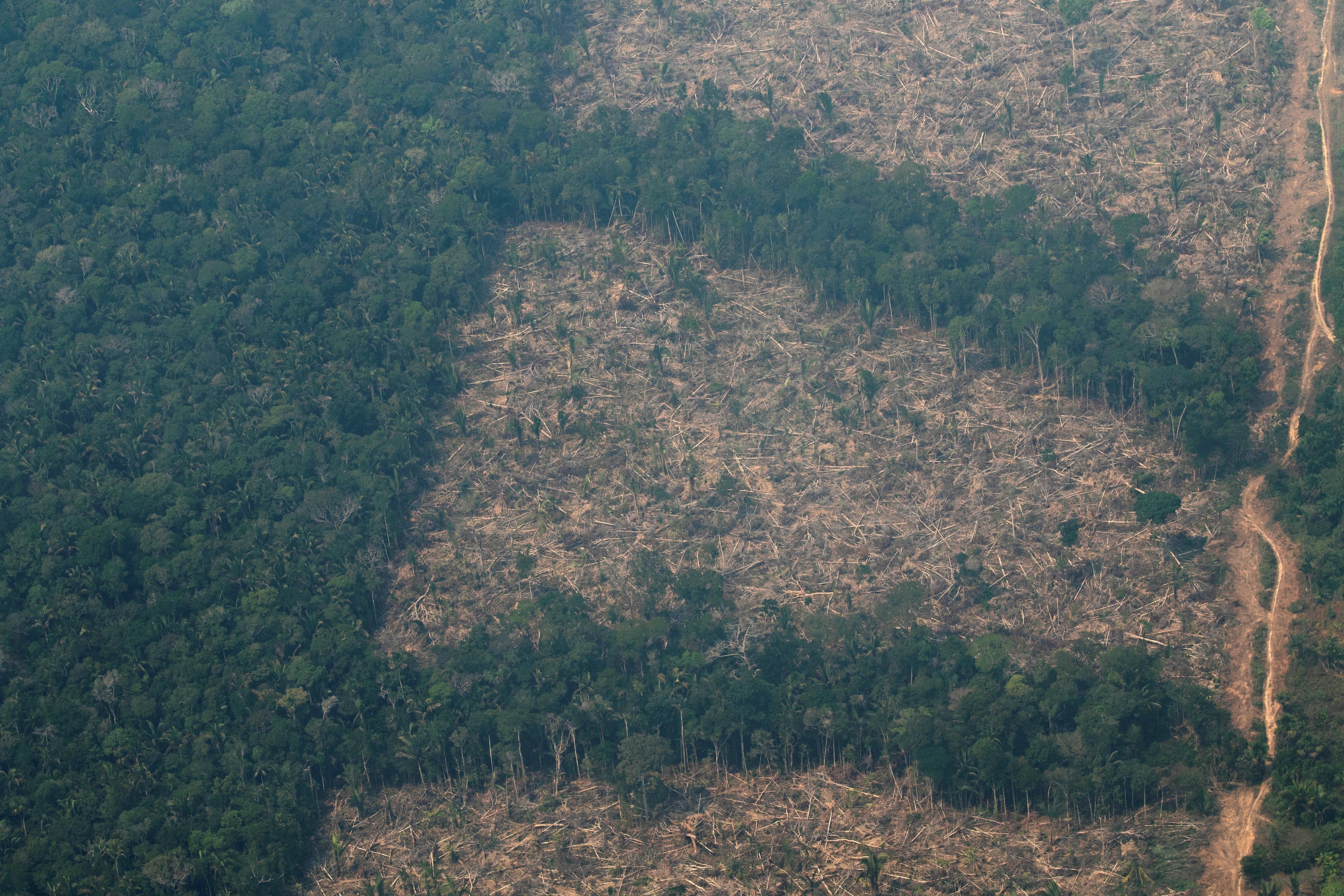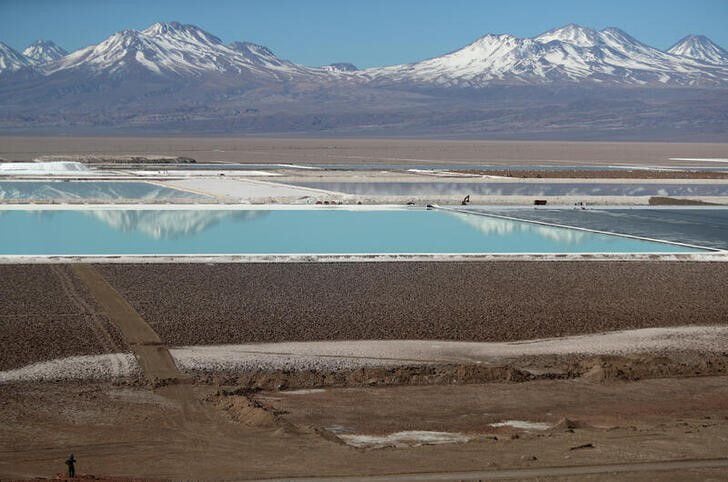
The influence of the Chinese regime in Latin America grew significantly in recent years. So much so that this relationship has already transcended economic cooperation. Today, however, we cannot speak of an extremely beneficial alliance. The growing dependence of countries in the Beijing region has been having serious effects, which represent a major concern for the future. Among them, deforestation stands out, as well as environmental and social impacts.
Mónica Núñez Salas, Assistant Professor of Environmental Law at the University of the Pacific in Lima, Peru, wrote a report for Florida International University, entitled “China's Investments and Land Use in Latin America”, in which he analyzes the great Chinese expansion and, at the same time, the poor management of the countries of the region.
Although Beijing has in recent years become the main trading partner of Latin American countries, “increased demand for raw materials is affecting natural resources and local populations, at a time when climate change is making sustainability practices more urgent.”
Against this background, the report notes that the region needs to review its practices and “prioritize the efficient management of land, water, minerals and waste.” It is that for many industries, Chinese investment and trade increased when Latin American countries were at the best of their capacities to supply their domestic markets and other Western nations. This means that the main challenge for the region is to adapt to this increase in Chinese demand, “while ensuring the social and environmental sustainability of its territories”.
A symptom of concern, as noted in the report, is that while Latin American countries continue to explore new Chinese markets for their products, “the problem is that the region's unsustainable production practices have not changed.” That is, the same standards that preceded the rise in Chinese demand for Latin American products persist.
The study focuses mainly on three of the most widely traded raw materials with China, such as soy, copper and beef. It also warns of the impact that the growing demand for lithium and pork can generate in Latin America “in the face of the imperative of scaling up climate action and halting environmental degradation.”
China's goal is to take advantage of emerging markets and support them financially. Thus, many countries have been able to access financial resources, fill their shortages in transport and energy infrastructure, and ensure constant demand for their products. This machinery was further exacerbated during the covid-19 pandemic, after the Xi Jinping regime promoted what became known as the” mask diplomacy”, through which multiple Chinese actors made supplies available to deal with the outbreak originating in China. The result: millions of items arrived on the continent in poor condition.
In addition, 19 countries in the region have joined in recent years the “Belt and Road Initiative”, considered the New Chinese Silk Road. But the terms of the loans are highly questioned, and constitute what is known as the “debt trap”.

This background has long posed the question of whether Latin America's growing dependence on China is really beneficial to the region.
“Achieving equitable mutual benefit in the trade and investment relationship between China and Latin America remains a challenge. Throughout its joint history, Latin America has maintained its role as a supplier of natural resources, at a high cost to its ecology and local communities,” the report states.
It also adds that the strategic partnership has benefited the parties “unequally”. In this regard, he points out that nine of the ten Latin American countries that have established strategic alliances with the Asian giant “are abundant in essential raw materials to sustain Chinese growth.”
This makes countries in the region “heavily dependent on a single partner”, and the scale at which production is required, coupled with previous domestic and international demand, “is becoming unsustainable and vulnerability is increasing at multiple levels”.
Countries such as Brazil and Argentina have become dependent on Chinese demand for beef and soy. Despite initiatives to adopt sustainable production standards, these industries continue to be linked to deforestation and forest fires to clear agricultural land.
The report highlights that, for example, in lithium extraction in Chile and soy production in Argentina, no excessive environmental damage has been detected compared to operations carried out by Western companies. However, China's demand for soy is significantly higher than that of other countries.
Meanwhile, the latest results show that Chinese demand for beef does represent a greater risk of deforestation. This, the report clarifies, would also improve if the country adopted better supply standards, such as sanitary requirements and slaughterhouse approval processes.
“A unique case of copper mining in Peru shows how global authorities can regulate a management change that would affect local communities' development plans and environmental rights, despite complying with national legal frameworks. These issues could be considered by Latin American countries, in order to focus transparency and public participation and prevent the risks of socio-environmental conflicts in the long term,” the study emphasizes.

As a result of these agreements, many countries in the region are running out of land not deforested for agriculture. Others, meanwhile, are causing socio-environmental conflicts around extractive industries and land-use change. “Most Latin American countries have inadequate regulations or have shown unwillingness to enforce their existing environmental provisions; therefore, they fail to adapt to the context of increasing demand and urgency to implement sustainable strategies.”
The report warns that habitat loss for wildlife causes interactions with domestic animals and people, posing a public health risk. In turn, loss of shade, refractive capacity and other thermoregulation services increase heat flow and dryness, affecting the stability of ecosystems. This is being felt by countries such as Argentina and Uruguay, both of which have lower crop yields due to droughts. At the same time, experts argue that increased deforestation and carbon emissions could bring the Amazon to a turning point: a drier climate would make the rainforest unable to sustain itself, initiating a process of transformation into a savannah ecosystem. In fact, the Amazon, considered the lung of the world, is already releasing more carbon than it absorbs, which makes it urgent to curb emissions.
“China could reduce its risk of deforestation in the beef supply chain by applying better sourcing standards, such as those related to animal welfare and monitoring indirect deforestation,” the report suggests.
It also states that countries in the region should pay special attention to investments in highly concentrated markets, such as lithium in Chile.
In the future, lithium is expected to add to Latin America's demand for minerals for new energy technologies. In the last decade, demand has already doubled, given the growing need for energy storage devices (lithium-ion batteries for solar panels, personal devices, mobile phones and electric vehicles).
In May 2018, Chinese company Tianqi Lithium acquired 24 percent stake in Chile's SQM (Chile Chemical and Mining Society), a leading global lithium producer and one of two extractive companies operating in the Atacama Desert. Tianqi Lithium also purchased the shares from Nutrien Ltd., a Canadian fertilizer company, following approval by the Chilean competition authority.
To date, SQM and Albemarle are the only ones that extract lithium in Chile. Tianqi Lithium is now a partner in companies in the two economic groups: Albemarle, in Australia, and SQM, in Chile.

Chilean lithium is attractive for the international market due to the low cost of extraction. Mineral deposits are found in complex aquifer systems under the Atacama Desert. This also entails social conflict, as indigenous communities have long denounced the impacts of extraction on their livelihoods. In addition, local farmers in San Pedro de Atacama are seeing water shortages and declining agricultural activities that also affect their food security and fracture the social fabric of their communities.
Chinese companies also dominate global investment in the agricultural sector, and Chinese actors, moreover, are not only interested in buying land in the region, but also in investing in the entire production chain.
This level of dependence led Latin American countries to become sensitive to changes in the Chinese economy. When China's growth slowed by 2-3 percentage points between 2013 and 2014, and remained stable at 6-7% since then, Argentina and Brazil, for example, “felt the full force of a negative shock to China's GDP.”
In 2016, China accounted for 13.1% of Argentina's trade, and Argentina 0.3% of China's. China also accounted for 18.1% of Brazil's trade, while Brazil accounted for 1.8% of China's trade.
For its part, the report acknowledges that the relationship between China and Latin America has also helped some countries in the region to make the transition to renewable energy technologies. Chile, for example, managed to achieve its 20% target for unconventional renewable energy in record time.
But, despite a few benefits, countries in the region that commit to expanding their commodity production continue to do so “at the expense of human and environmental health.”
“Whether the region is able to keep pace with these demands in a sustainable way will depend on whether its partnership with China contributes to achieving 'the South American industrial and energy dream',” the report concludes.
Keep reading:
Últimas Noticias
Debanhi Escobar: they secured the motel where she was found lifeless in a cistern
Members of the Specialized Prosecutor's Office in Nuevo León secured the Nueva Castilla Motel as part of the investigations into the case

The oldest person in the world died at the age of 119
Kane Tanaka lived in Japan. She was born six months earlier than George Orwell, the same year that the Wright brothers first flew, and Marie Curie became the first woman to win a Nobel Prize

Macabre find in CDMX: they left a body bagged and tied in a taxi
The body was left in the back seats of the car. It was covered with black bags and tied with industrial tape
The eagles of America will face Manchester City in a duel of legends. Here are the details
The top Mexican football champion will play a match with Pep Guardiola's squad in the Lone Star Cup

Why is it good to bring dogs out to know the world when they are puppies
A so-called protection against the spread of diseases threatens the integral development of dogs




